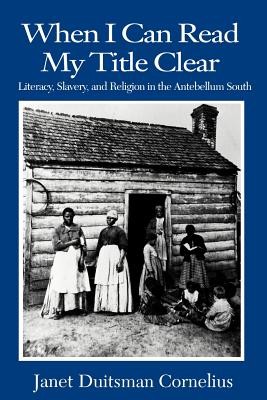
- We will send in 10–14 business days.
- Author: Janet Duitsman Cornelius
- Publisher: University of South Carolina Press
- ISBN-10: 0872498719
- ISBN-13: 9780872498716
- Format: 15.3 x 22.8 x 1.6 cm, softcover
- Language: English
- SAVE -10% with code: EXTRA
Reviews
Description
This is the first study to focus on the roots of slavery in the African-American drive for literacy and schooling that exploded immediately after the American Civil War. The author examines why blacks valued literacy, how it played an integral part in the black church, and how it served as an instrument of political resistance in the African-American community under slavery. Cornelius also explores the complexities and contradictions in the roles played by early southern slaveholders who used literacy as a barrier between black and white, slave and free. While legal restrictions against teaching slaves to read were less extensive than commonly thought, sanctions were brutal and pervasive. However, despite the threat of grim punishments, enslaved African-Americans did learn to read.
EXTRA 10 % discount with code: EXTRA
The promotion ends in 19d.14:35:48
The discount code is valid when purchasing from 10 €. Discounts do not stack.
- Author: Janet Duitsman Cornelius
- Publisher: University of South Carolina Press
- ISBN-10: 0872498719
- ISBN-13: 9780872498716
- Format: 15.3 x 22.8 x 1.6 cm, softcover
- Language: English English
This is the first study to focus on the roots of slavery in the African-American drive for literacy and schooling that exploded immediately after the American Civil War. The author examines why blacks valued literacy, how it played an integral part in the black church, and how it served as an instrument of political resistance in the African-American community under slavery. Cornelius also explores the complexities and contradictions in the roles played by early southern slaveholders who used literacy as a barrier between black and white, slave and free. While legal restrictions against teaching slaves to read were less extensive than commonly thought, sanctions were brutal and pervasive. However, despite the threat of grim punishments, enslaved African-Americans did learn to read.


Reviews